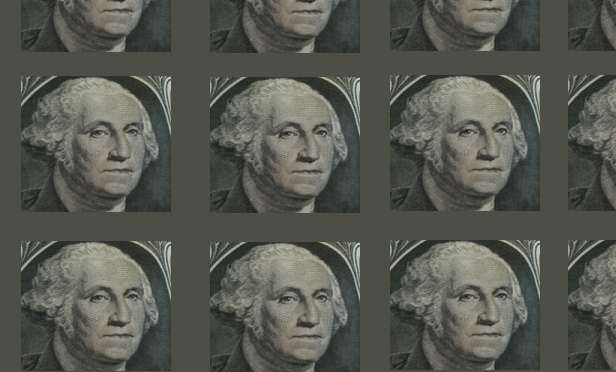Annuity issuers are celebrating the arrival of new private letter rulings from the Internal Revenue Service. The new IRS rulings give life insurers the ability, under certain circumstances, to pay fee-based financial advisors asset-based fees directly from ordinary, individual annuity contracts, without generating any of those dreaded "taxable events" for the customers. (Related: IRS Rules for Nationwide and Lincoln on Annuity Advisory Fees) Sales of fee-based annuities accounted for only a small slice of U.S. issuers' $232 billion in 2018 individual annuity sales, according to data from the LIMRA Secure Retirement Institute. But many insurers and distributors have been hoping that growth of fee-based annuity sales could be a way to give consumers an alternative to the traditional annuity sales process and reduce the pressure from state and federal regulators to adopt new annuity sales standards. The new IRS ruling should make it easier, and cheaper, for issuers of fee-based annuities to pay advisors themselves, without generating a Form 1099 blizzard. Here's a look at five other possibilities stemming from the new IRS rulings.
1. Many life insurers could have private letter rulings.
Nationwide and Lincoln Financial announced last week that they had received private letter rulings. But private letter rulings are, actually, private: The IRS deletes the requesters' identifying information before posting the main ruling text on the web. It's possible that many insurers other than Nationwide and Lincoln Financial also have received similar private letter rulings. Great American Life, a unit of American Financial Group Inc., announced today that it, too, has received a private letter ruling. Great American Life's ruling covers payment of asset-based advisory fees from an indexed annuity contract that's filed as a non-variable contract.
2. Private letter rulings could create a temporary gap between the haves and the have-nots.
A private letter ruling applies only to the taxpayer that requested it. Other taxpayers have to get their own private letter rulings. That could give insurers private letter rulings a head start over competitors.
3. The rulings could lead to an informal 1.5% annual cap on advisory fees.
All of the companies that have talked about their private letter rulings so far have said they told the IRS they'd limit the advisory fees to 1.5% of the contract's account value per year.
4. The rulings could increase consumption of champagne and alternatives among life insurance industry regulatory affairs insiders.
Great American said in its letter ruling announcement that it's been working with other life insurers to obtain the new tax treatment since 2017. Freeman Durham, senior counsel at Great American Insurance Group - Annuities, said in a statement that Great American Life helped IRS officials understand how fee-based indexed annuities work. "It's rewarding to see the ruling finalized and know that we're opening up new doors for advisors and their clients," Durham said.
5. The rulings could lead to (some) change in attitudes about annuities.
If more fee-based financial professionals offer clients help with annuities, that could increase competition for commission-based agents. But, if more fee-based financial professionals work with annuities, that could increase their awareness of annuities, and temper any financial incentive they might have to bash annuities. That could lead to a different climate for all financial professionals who work with annuities. — Read 7 Things to Know About IRS Private Letter Rulings, on ThinkAdvisor. — Connect with ThinkAdvisor Life/Health on Facebook, LinkedIn and Twitter.
NOT FOR REPRINT
© 2024 ALM Global, LLC, All Rights Reserved. Request academic re-use from www.copyright.com. All other uses, submit a request to [email protected]. For more information visit Asset & Logo Licensing.
You Might Like
View AllTrending Stories
Who Got The Work
Michael G. Bongiorno, Andrew Scott Dulberg and Elizabeth E. Driscoll from Wilmer Cutler Pickering Hale and Dorr have stepped in to represent Symbotic Inc., an A.I.-enabled technology platform that focuses on increasing supply chain efficiency, and other defendants in a pending shareholder derivative lawsuit. The case, filed Oct. 2 in Massachusetts District Court by the Brown Law Firm on behalf of Stephen Austen, accuses certain officers and directors of misleading investors in regard to Symbotic's potential for margin growth by failing to disclose that the company was not equipped to timely deploy its systems or manage expenses through project delays. The case, assigned to U.S. District Judge Nathaniel M. Gorton, is 1:24-cv-12522, Austen v. Cohen et al.
Who Got The Work
Edmund Polubinski and Marie Killmond of Davis Polk & Wardwell have entered appearances for data platform software development company MongoDB and other defendants in a pending shareholder derivative lawsuit. The action, filed Oct. 7 in New York Southern District Court by the Brown Law Firm, accuses the company's directors and/or officers of falsely expressing confidence in the company’s restructuring of its sales incentive plan and downplaying the severity of decreases in its upfront commitments. The case is 1:24-cv-07594, Roy v. Ittycheria et al.
Who Got The Work
Amy O. Bruchs and Kurt F. Ellison of Michael Best & Friedrich have entered appearances for Epic Systems Corp. in a pending employment discrimination lawsuit. The suit was filed Sept. 7 in Wisconsin Western District Court by Levine Eisberner LLC and Siri & Glimstad on behalf of a project manager who claims that he was wrongfully terminated after applying for a religious exemption to the defendant's COVID-19 vaccine mandate. The case, assigned to U.S. Magistrate Judge Anita Marie Boor, is 3:24-cv-00630, Secker, Nathan v. Epic Systems Corporation.
Who Got The Work
David X. Sullivan, Thomas J. Finn and Gregory A. Hall from McCarter & English have entered appearances for Sunrun Installation Services in a pending civil rights lawsuit. The complaint was filed Sept. 4 in Connecticut District Court by attorney Robert M. Berke on behalf of former employee George Edward Steins, who was arrested and charged with employing an unregistered home improvement salesperson. The complaint alleges that had Sunrun informed the Connecticut Department of Consumer Protection that the plaintiff's employment had ended in 2017 and that he no longer held Sunrun's home improvement contractor license, he would not have been hit with charges, which were dismissed in May 2024. The case, assigned to U.S. District Judge Jeffrey A. Meyer, is 3:24-cv-01423, Steins v. Sunrun, Inc. et al.
Who Got The Work
Greenberg Traurig shareholder Joshua L. Raskin has entered an appearance for boohoo.com UK Ltd. in a pending patent infringement lawsuit. The suit, filed Sept. 3 in Texas Eastern District Court by Rozier Hardt McDonough on behalf of Alto Dynamics, asserts five patents related to an online shopping platform. The case, assigned to U.S. District Judge Rodney Gilstrap, is 2:24-cv-00719, Alto Dynamics, LLC v. boohoo.com UK Limited.
Featured Firms
Law Offices of Gary Martin Hays & Associates, P.C.
(470) 294-1674
Law Offices of Mark E. Salomone
(857) 444-6468
Smith & Hassler
(713) 739-1250












